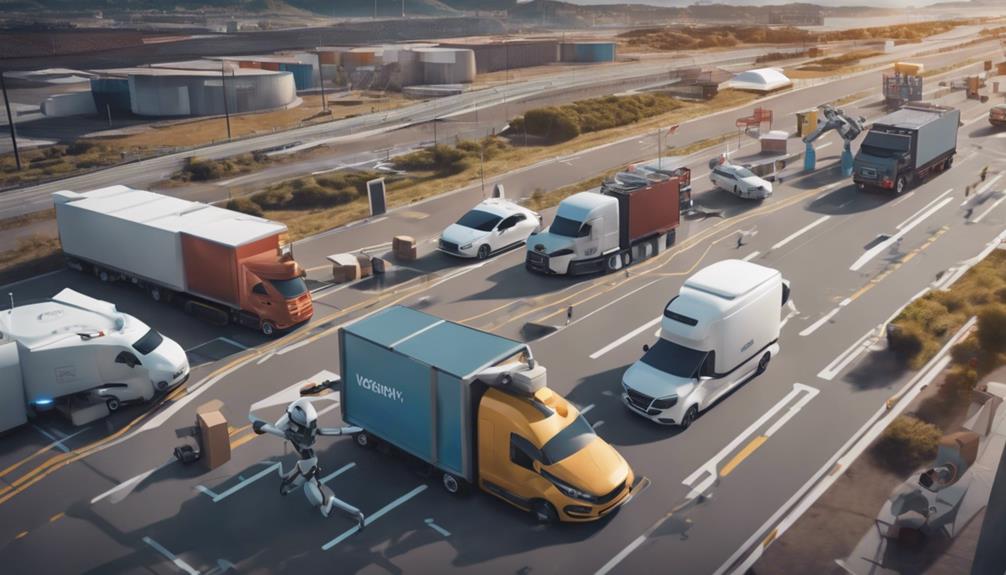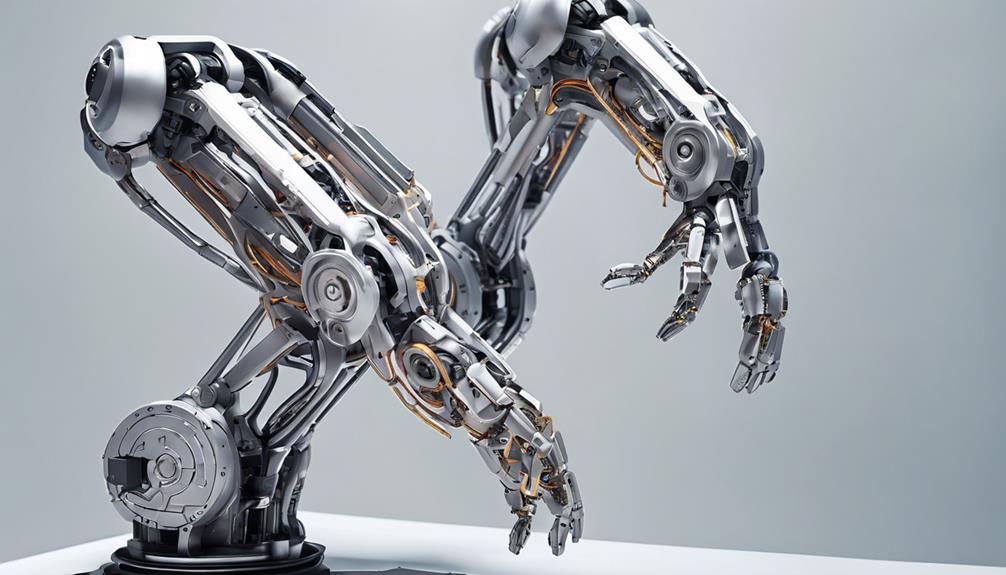In an era marked by rapid advancements in technology, the impact of artificial intelligence on various industries is becoming increasingly evident. With the advancement of AI capabilities, certain professions are expected to undergo significant transformations.
The impending influence of AI on roles such as healthcare professionals, transportation industry workers, and customer service representatives raises critical questions about the future landscape of these sectors. The integration of AI into these job domains holds the potential to revolutionize traditional practices, prompting stakeholders to contemplate the implications of this technological shift.
Key Takeaways
- Healthcare professionals will see improved diagnostic accuracy and efficiency with AI integration.
- Transportation industry roles may shift due to autonomous vehicles, requiring new skills.
- Customer service representatives benefit from AI tools for streamlined and personalized interactions.
- Professionals must upskill to adapt to AI advancements, creating new job opportunities and career growth.
Healthcare Professionals
The integration of AI technology in healthcare has significantly transformed the roles and responsibilities of healthcare professionals, enhancing diagnostic accuracy and task efficiency. AI plays a pivotal role in aiding healthcare professionals in interpreting medical images accurately, thereby improving diagnostic precision. While AI can expedite certain healthcare tasks, human doctors remain essential for making final decisions and processing patient information, underscoring the importance of human expertise in the healthcare sector.
Moreover, AI integration in healthcare allows healthcare professionals to redirect their focus towards tasks that necessitate empathy and complex decision-making, areas where human intervention is irreplaceable. This collaboration between AI technology and human expertise not only optimizes healthcare services but also ensures that patients receive comprehensive and compassionate care. By leveraging AI for tasks that require data processing and analysis, healthcare professionals can devote more time to patient interaction, personalized care, and critical decision-making, ultimately enhancing the overall quality of healthcare services.
Transportation Industry

The advancement of AI technologies in the healthcare sector highlights a broader trend impacting various industries, such as the transportation sector, where the emergence of autonomous vehicles poses significant implications for job roles and skill requirements.
As AI advancements continue to reshape the transportation industry, several key points should be considered:
- Job displacement: Autonomous vehicles may lead to a decrease in the need for human drivers, potentially displacing current transportation employees.
- Career transition: Former drivers can explore opportunities in fleet management and logistics coordination as they adapt to the evolving landscape of autonomous vehicles.
- Developing technologies: Individuals interested in the transportation sector can focus on roles related to developing and improving autonomous vehicle technologies, creating new job prospects within the industry.
As the transportation sector navigates the transition towards autonomous vehicles, managing operations and coordinating operations will become crucial skills for professionals looking to thrive in this evolving landscape.
Customer Service Representatives
How do AI advancements impact the role of customer service representatives in the modern business landscape? AI tools such as ChatGPT are revolutionizing customer service roles by providing quick responses to inquiries and offering training documents for representatives. This automation through AI advancements streamlines processes, making service delivery more efficient. Customer service representatives now need to adapt to new technologies like AI chatbots to enhance their interactions with customers and improve overall service delivery. AI not only increases efficiency but also allows for more personalized interactions with customers, ultimately leading to higher satisfaction levels.
| AI Advancements in Customer Service | ||
|---|---|---|
| Enhances Efficiency | Streamlines Processes | Personalized Interactions |
| AI provides quick and accurate responses. | Automation simplifies tasks for representatives. | AI tools offer tailored solutions for customers. |
| Representatives adapt to new technologies. | AI optimizes service delivery. | Customers receive more personalized support. |
Frequently Asked Questions
What Jobs Will Be Most Impacted by Ai?
Professionals across various sectors face imminent impact from AI advancements. The evolving landscape of technology is poised to disrupt roles requiring routine tasks, especially in finance, law, and management. Adaptability and upskilling are crucial.
What Jobs Are in Danger Due to Ai?
In the realm of work, the looming shadow of AI threatens traditional job roles, especially in finance, law, and management. As automation advances, professions relying on routine tasks face a precarious future, necessitating adaptation and upskilling.
What Job Is Most Safe From Ai?
In the realm of job security amidst AI advancements, roles that hinge on intricate human attributes like empathy, creativity, and critical thinking remain resilient. Professions necessitating high emotional intelligence, complex decision-making, and interpersonal skills typically offer stability against AI intrusion.
Which Jobs AI Will Not Replace?
AI is less likely to replace jobs that require high levels of empathy, creativity, and critical thinking. Roles in healthcare, education, management, and construction, which involve strong human interaction and problem-solving skills, are less susceptible to AI automation.
Conclusion
In conclusion, the impact of AI on jobs is clear, with management consultants, financial managers, and accountants being among the most affected professions. As AI technology continues to evolve, professionals in these fields will need to adapt their skillsets to stay competitive in the changing job market.
One interesting statistic to consider is that by 2030, it is estimated that automation could potentially displace up to 800 million workers globally, highlighting the urgency for individuals to upskill and reskill for the future workforce.









